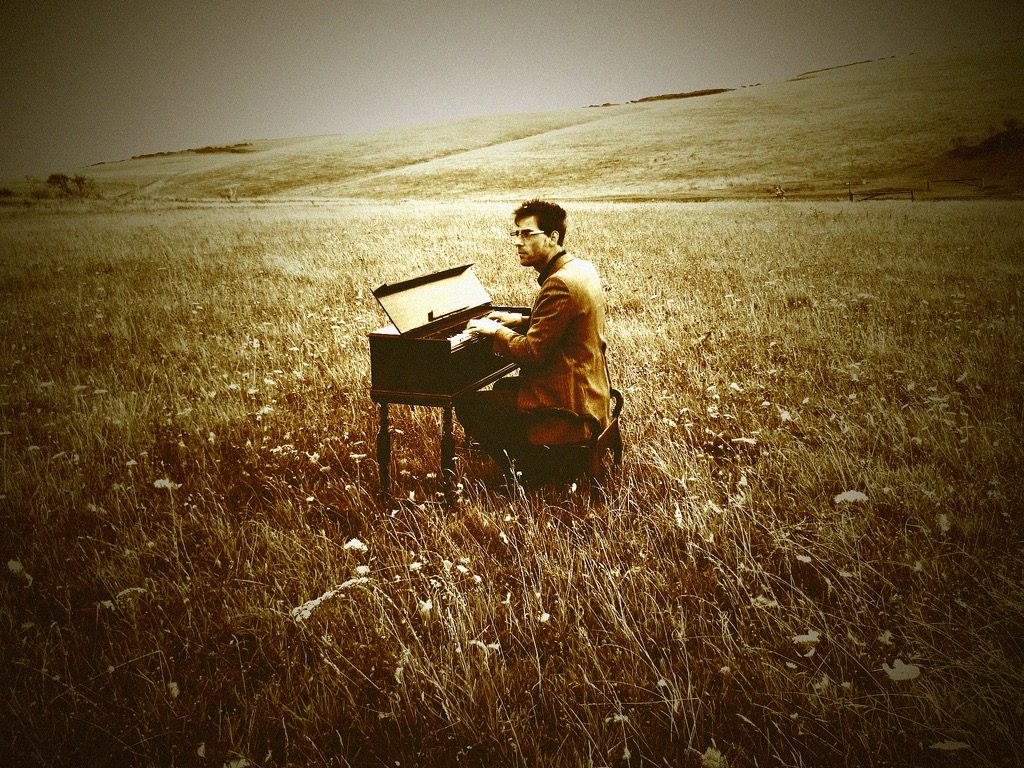
An appreciation of the work of David Bramwell
The word polymathism has become a somewhat antique phrase of late, as there are so few individuals left who truly merit it. There are still countless exceptional practitioners of course, but the people from any culture who cross the forms in the same way that Alejandro Jodorowsky, Peter Greenaway, Satyajit Ray, or, and this is no pale slip, Anthony Newley once did are few and far between. We have the visionary genius of Alan Moore, the all encompassing mastery of literary cineastes Iain Sinclair and Chris Petit, along with the mighty poet, sculptor and novelist Brian Catling and indeed, the herculean expertise of artist, film maker and writer, Andrew Kotting, but in the work of David Bramwell we have a highly defined sense of this particular form of accomplishment through the addition of music. Indeed, the aforementioned and in this case, near sainted word could well be extended or righteously bastardised to become Polymathetics in this case, on account of the varied combinations and response driven equations he so artfully resolves in all of his work.
Documentarian, Producer, Broadcaster, Singer, Multi-instrumentalist, Songwriter, Composer, Historian, Public speaker, Memoirist and devourer of landscape, these are just some of the steps to his trail. What unites them all is simply the ease of his talent and the ordering of his thoughts and responses. It is there in his remarkable books, The Haunted Moustache, The No. 9 Bus to Utopia and The Odditorium, and wonderfully evident in the smooth, flute like appeal of his singing voice and exquisite musical arrangements and choices in his recorded work under the solo and group banner of Oddfellows Casino.
We are two heterosexual men but I have in the space of no more than a week fallen rather profoundly in love with his recorded and printed output and this profile is intended to share some of that artistic affection and promote or introduce the body of work to you, should it be currently unfamiliar. I have previously reviewed his new album Oh, Sealand, so will now cover his soon to be seminal books, along with his previous albums, The Raven’s Empire, The Water Between Us and Dust, along with some of his radio work.
Bramwell’s is a genteel assault on our current practise as his own divine waters seek to separate us from what is rapidly become a turgid and polluted shore, urging us away towards a restorative sea.
If I over enthuse I do so without embarrassment, as I have found little in the contemporary world that equals the work of my own personal heroes, and indeed the tragic loss of Heathcote Williams in July 2017 has called for the need for as many valuable artistic and emotional reactions to the world in which we wait outside banished to the cold, while the lumpy imperialists squat in the heat of our fast burning souls, as is humanly possible. David Bramwell is in my view attempting to redirect our gaze and enforce our connection with the elemental forces necessary for an effective resistance. The natural world and the mysteries within it are his subject. By realigning ourselves with forgotten inspirations we may have the fuel to go on.
What Angels there were have fallen into seclusion. Bramwell lifts the cloud bank, teasing out a new sun.
The Haunted Moustache, handsomely published in 2016 by Nightfinch Books is this new artistic superhero’s origin story. It details the evolution of not only Bramwell’s artistic sensibility but the hidden resources available to all of us if we were to only put down our hammers and examine the true coarse of the grain running through and beneath us. Born in Scunthorpe at the end of the sixties, Bramwell’s family moved to Doncaster when he was eight. From there, an educational delay in Coventry led Bramwell to achieve full colour and vibrancy in Brighton, having finally escaped the dour locales of his youth. Brighton provides much of the rusted glamour of the book through the individuals Bramwell meets, from Adrian Bunting, underground host and eventual artistic director of the world’s smallest theatre, to Drako Zarhazar, egg bursting one man freakshow and scion of a masturbating Salvador Dali and wealder of more penile piercings than you could ever shake a pagan-like festooned cock at during a summer solstice.
And yet location alone does not a full story make. This might be something that Alan Moore may dispute with his seismic North (or Night) Hampton cradlings, but in this book, it is the quest to understand a bizarre bequeathment that underpins Bramwell’s transformation from Northern nothing to mutant butterfly.
The death in 1991 of an eccentric spinster aunt, complete with the almost expected feline coterie and distanced from and held in withering suspicion by Bramwell’s parents, leaves him an heirloom familiar from a childhood of intermittent visits. Mounted in a glass case and lovingly accompanied by a totemistic phrase TRUST ABSOLUTE UNCONDITIONAL is the carefully preserved moustache of the travelling showman and Gnostic guru, Ambrose Oddfellow. Aunt Sylvia’s bequest sends Bramwell back into an exploration of his past before spiralling on towards his own destiny, as the inheritor and successor of a charming nomenclature, able to transmogrify former accomplishments into new standards of achievement through the form of the songs and albums that follow. There is then in reading the book an enchanting, Old English style air, reminiscent of some of those classic British films we have almost lost touch with, such as Kind Hearts and Coronets and I Know Where I’m Going! Not in terms of content perhaps, but certainly in terms of atmosphere, affect and intent. Bramwell levels such things with the aforementioned description of Brighton’s underground scene, but does so with a delicacy and tastefulness and a realm of interest missing from most memoirs and biographies.
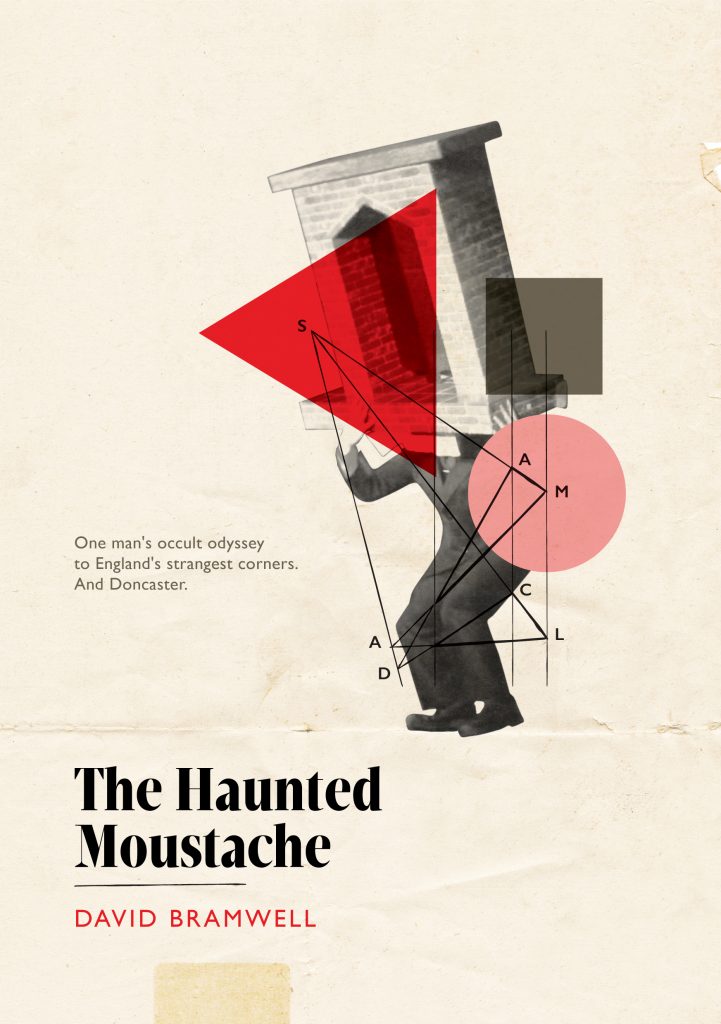
Sylvia lived in the Lincolnshire village of Woodhall Spa, a place where in 1811, pioneering bankrupt John Parkinson’s aspirant but soon to be flooded coalmine gave way to long buried springs that not only revived lame horses but also drew the attentions of famous spiritualists of the light and dark side of consciousness, such as Madame Blavatsky and G.I. Gurdjieff. The Spa eventually closed and became the location of the burgeoning local Kinema, home of stage and music hall style entertainments and later film showings. Its role as focal point for the attendant community was maintained by the frequent visits and eventual residency by Ambrose Oddfellow and his Oddfellow’s Casino of freakery and wonder. Under this revelatory style presence the journey begins and the adult Bramwell’s quest is to find out how and indeed why Oddfellow’s moustache came to be owned by his suffering aunt. The sources of sea and spa will coalesce as he reaches his spiritual Brighton home before this revelation reveals itself, and as it does so, Bramwell as biographer of his own past unearths all sorts of links and connections to secretive places and societies. The magic waters provide their own analogy and throughline as people once thought dry and weathered return, cleansed and powered by a new destiny; with the connection of sea and spa evidenced by a famous medical tome of the time.
Through Doncasterian asides – who’s greatest story is about trying to find something to say about Doncaster, and ending up with what has to be described as a very funny joke by Bernard Manning, Bramwell finds home in Hove and his first great love, Hippy Lily, the child of a mother who provided for her family by retrieving jilted spouses’ lost wedding rings from under the great pier, and whose own psychedelic liberalism echoes and enhances his own.
The course of Brighton’s hidden underground river, the Wellesbourne connects the underground bars, sex clubs and performance venues that Bramwell starts to frequent, providing the chance and events in which he first meets Adrian Bunting, situationist performer Dave Suit (who wears a fireplace on his head) and the wall licking acid burnout, Weird Ken. As Bramwell’s boundaries expand we become aware that his life by the sea in the 1980s and 90s provides strange counterbalance with his spa dwelling aunt. Before finding out the full details the narrative deeped as it becomes clear that this David is also becoming a part of his own private circus, just as much if not moreso than the source of his inspiration, Ambrose Oddfellow. From the Drag artists of the Queens Arms (with its tale of previous residents the notorious Siamese twins Daisy and Violet Hilton, stars of Todd Browning’s seminal film, Freaks), to his enrolement in burgeoning Brighton based cult, The Revolutionary Shamanism of the Light, Bramwell is searching for belonging, in some ways aping his aunt’s formidable independence. Through his growing detachment from the mysticism and plastic spiritualism his girlfriend favours, his own inner resolve and sense of innovation is born Amrose’s Moustache becomes his true and constant companion, the link between all of his episodes and experiences, revealing itself later on in the book as a kind of psychic transmitter, the possible cause of a car accident and ensuing coma. It haunts him as it haunted his aunt before him, and yet this is a haunting that in its truest form revives his developing life.
Whatever its affectations offer, Bramwell is there to chart and guide the potential reader with an expert’s eye and a novelist’s hand, and the journey he undertakes both exponentially and in distraction and diversion are endlessly appealing. The book reminds me of Luis Bunuel’s My Last Breath, arguably one of the most useful books ever written (detailing everything from the history of surrealism to how to make the perfect dry martini), through its rage and scope, and it is sumptuously illustrated with photographs and paintings that evidence each step Bramwell takes. When the reason for the bequeathment is revealed one sees in an instant that the power of love in its truest sense, divorced from the romantic is all encompassing. A strange and distant relative, the survivor of her own tragedy, lives out a shattered existence in order to provide the seal for an affectioned descendent, granting him not only artistic purpose but a near revolutionary theme.
You may well have guessed by now that I cannot recommend this book highly enough. It is one of those objects vital for anyone with artistic interest or curiosity. It is the kind of story you yourself wish you had lived – I did certainly and so the involvement in lives that remain as fascinating as this holds the potential to send us back to our own, with renewed vigour, keen to see in that searching if we can bring forth our own sea, and convert each dry house to a spa. It is not for me to furnish you with any more detail, but simply to compel you to take this first step into Bramwell’s world before accessing the music. Like Salinger’s Glass trilogy each component part belongs to a greater story and from that story, the glory of understanding is sprung.
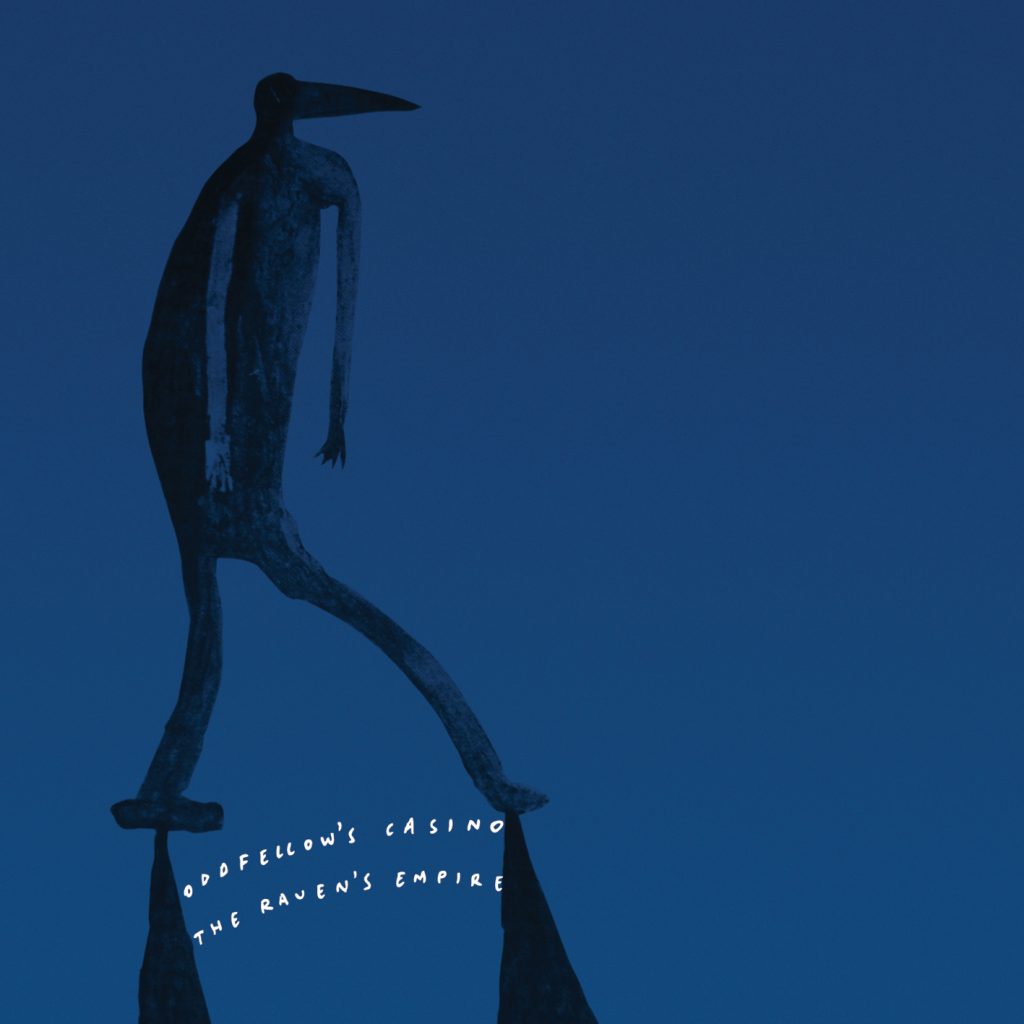
The book ends with the writing of Bramwell’s first songs on a somewhat inadequate piano. He was soon able to translate these dampened sounds into two earlier albums whose lightness of touch then gave way to the smooth synth and guitar lines of 2012’s The Raven’s Empire. Opening song The Day the Devil Slipped Away is a brilliant example of what’s to follow as it talks of the ‘strange buildings that cover you’ and ‘strange houses over you’ and ‘the streetlight that puts the bird to sleep..’ One wants to hang onto every phrase as they are delivered with a slinky appeal, crested by Bramwell’s high, smooth voice. The stillness and restraint of this music satisfies particularly because its content and aim is so artful. Simple motifs repeat to encourage alignment with the listener. Quite simply, it is intelligence represented by sound.
Winter is a Strange Town offers some of the Brightonian air that so inspires Bramwell and that fresh, strange, out of season appeal of the english coast is there in the sweet guitar pickings and hushed breathy harmonies. We Will be Here and Seabirds resound with the echoes of outsider ambience in which ‘Time gives up the ghost..’ and other phrases both of this world while still being reminiscent of another, lost one, glimpsed in snatches of song and eternally yearned for. These musings are anchored by a superb sense of English folksiness, even a touch of sea shantiness, conveying lines and phrases such as ‘we stay too long in the old world, dressed in last years clothes..’ Its rare to find music that not only houses words so well but which actually represents them, and indeed the converse is also the case, as lyric and tune sail out together, exchanging positions on deck. As the verses expand in these and all of the other songs, two notes, three notes speak to that inner harmonic in all of us, pulling at the ‘rope and the reins’ of the heart.
Birds are big for Bramwell. In a Raven’s album how could they not be, but The Crow and the Rooks stumbles gracefully after the previous eeriness to speak to us in a new way. Singer/musician forges a more direct connection to audience as he sings in the way we all do to songs we like, only slightly better. This song has some of the beauty of Peter Gabriel’s Washing of the Water, which is one of his most transcendent melodies. All of Bramwell’s songs share the same sheen of such wings.
When the Comet Came has a lower registered vocal which prepares us for a later ascent and is suitably joyful. That this is the joy of seeing or being the ashes rising above a fire is unimportant. Joy is King of any number of kingdoms, with none of them boxed in by size. You’ve Come to these Woods to Hunt Me is all ethereal shimmer and sharp note pounding, reminiscent of echoes of punk calling from decades of distance through the reverberation of soil, ploughed as ever by a more polished piano than Bramwell first owned. As you listen to this music you can hear the terrifyingly vivid Herons of the English coast from which this music was birthed and you can also see the strangeness of their stare. There is something controlled and unsettling to what is produced and yet the final song Death Won’t Have Me heals all wounds with a warm brass line that ushers in the next wave of experience with the still ghostly prescience we both want and expect from these songs.
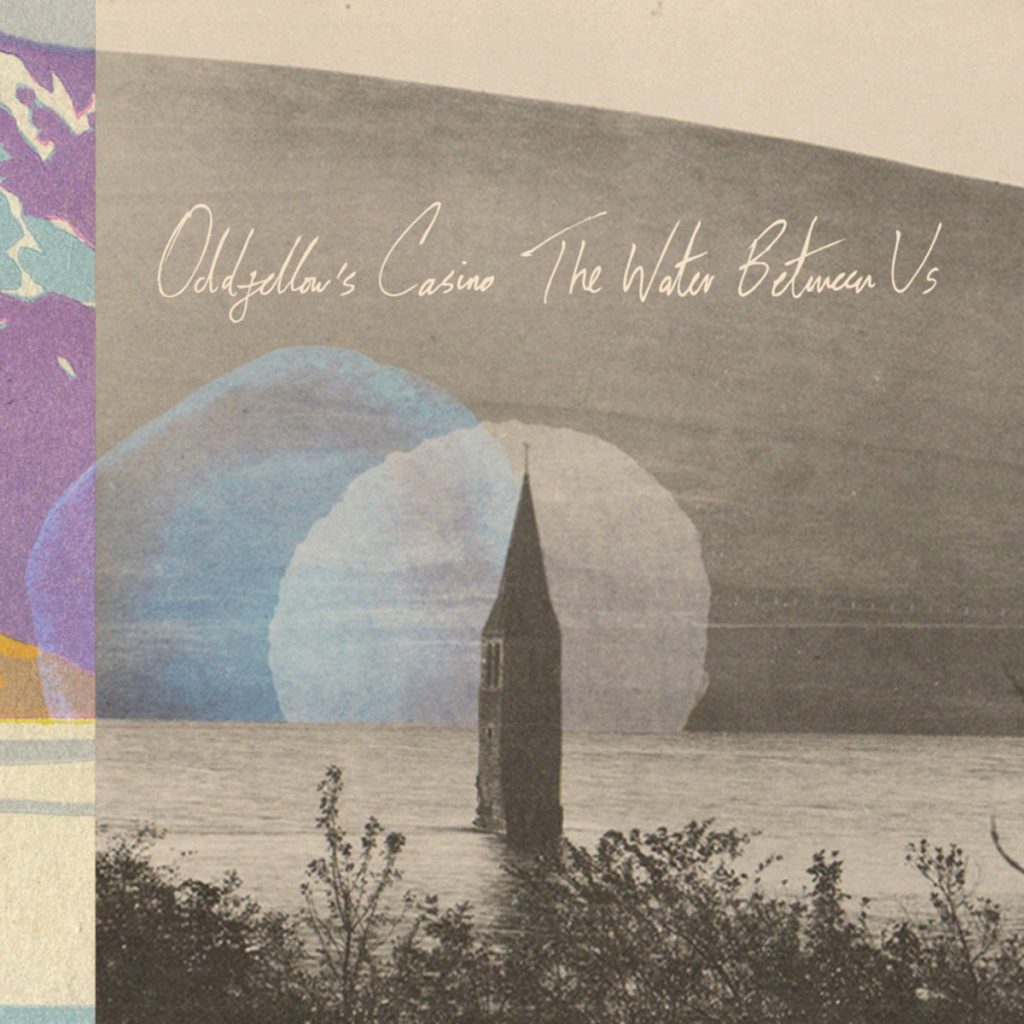
Second album The Water Between Us widens this river of change. Wild Waters’ skittering percussion, rippling synth and softened vocals compel us to ‘come to the wild waters of the English coast.. and the lonely winter gardens by the bay..’ and in so doing Bramwell broadens his established musical perspective into painterly (albeit water coloured) portraiture. A near Frippesque guitar squeal expands the song adding some grit to the flow, welcoming us into an album rather than the assault of most other contemporary practitioners. Stone Riders forges a connection to the standing stones and legendary air of writers like Alan Garner and David Rudkin, as if Bramwell were their very own commissioned musical interpretor, and Strange Love expands the aural and near visualised pallete further by fusing an 80’s electronica spiked synth line with a strident melody and a lyric involving ‘border towns and grey grey skies.’ We Lose Ourselves’ acoustic guitar figure resonates beautifully as Bramwell introduces the kind of vocal beloved of an adult choirboy, while singing of the ‘heart as an island of cut grass and cobblestones..’ Its Bramwell’s orderliness and turns of phrase that so impresses as he stockpiles his ruminations on an England he reveres and knows well. The nameless zones of Scunthorpe, Doncaster and Coventry detailed in The Haunted Moustache achieved true revivification once the coast was reached and Brighton’s somewhat overloaded artiness is pleasantly leavened by work like this that shows that while like London, fashionable areas can be breeding grounds for the limitations of distraction, informed viewpoints, from those who have lived, loved and more importantly, read a little truly brighten, nourish and enrich.
The Quiet Man has a touch of Blur or Suede at their most esoteric and again the use of two or three notes works wonders on the busy ear. As the song calls for the quiet man in all of us ‘with the courage to know’ the failings ‘of all that shimmers,’ tasteful, subdued cornet soothes us into appreciation. Ghosts of the Moorland has a boogieish fuzzed bass figure and a glissando or two, along with an enviable looseness. It seems to me that the aural purpose of Bramwell’s guitar work is often to laser through, underpin or transform a melody or atmosphere and it is particularly useful here. The songs are boxes that the arrangement opens, with each one emitting new air. As keyboard trills flutter and swan, electric strings earth us. The Great Cold arrives with slight beeps and blurs and a sedantry beat talks to us closely of change and reform.
Oddfellow’s Casino as an approach, group and vision, in this current and indeed in all of their previous incarnations, seem to carry their own climate with them. They are in fact as a collective representation of David Bramwell’s many skills, along with accompanying musicians Alistair Strachan on cornet, Emma Pepper on clarinet, Dan Burke on guitar, Julian Tardo (assorted instruments) and Rachel James, Rachel Blackman, and Carl ‘the nose’ Vincent on additional vocals, a kind of prinicipality in their own right, or, perhaps, vital nation state; an alternative Albion circling our forgotten own and reminding us of the essential forces we have long lost contact with. Warm Skin for a Hunter’s Moon is an ever more soothing treatise for the interloper with a King Crimson-like mellotron wash offering the most gentle of warnings. The Magpie’s son has a bassy, bell like series of musical invocations as the song reels us in as the title character finds voice as he ‘circles the earth and breaks through the dirt…’ with what is clearly the keenest of eyes.
It would appear that the avarian empire of the previous album is just as secure in this follow up from 2014 as Bramwell finds and reflects the numerous marvels in nature. His precursor, Ambrose Oddfellow sought other wonders, chiefly through his latter adoption of Gnosticism. Those essential forces led to their own secret society (which essentially birthed health insurance through the protection offered its members) and there is sense too in this music that Bramwell wishes us to join a new society in which the insurance and security offered by an alignment with the natural world embroils, enveigels and seeks to unify, returning us all to the ancient priorities we have long forsaken. The Lighthouse Keeper tells of a man and a building that ‘stands alone in violent waters’ prepared for the onslaught of ‘Neptune’s daughters.’ The Keeper will ‘dance the tango with the lights low.. until they’re gone..’ It’s a wonderful evocation of place, time and resistance and it speaks of a world like no other, which anyone willing or worthy would inevitably want as their own.
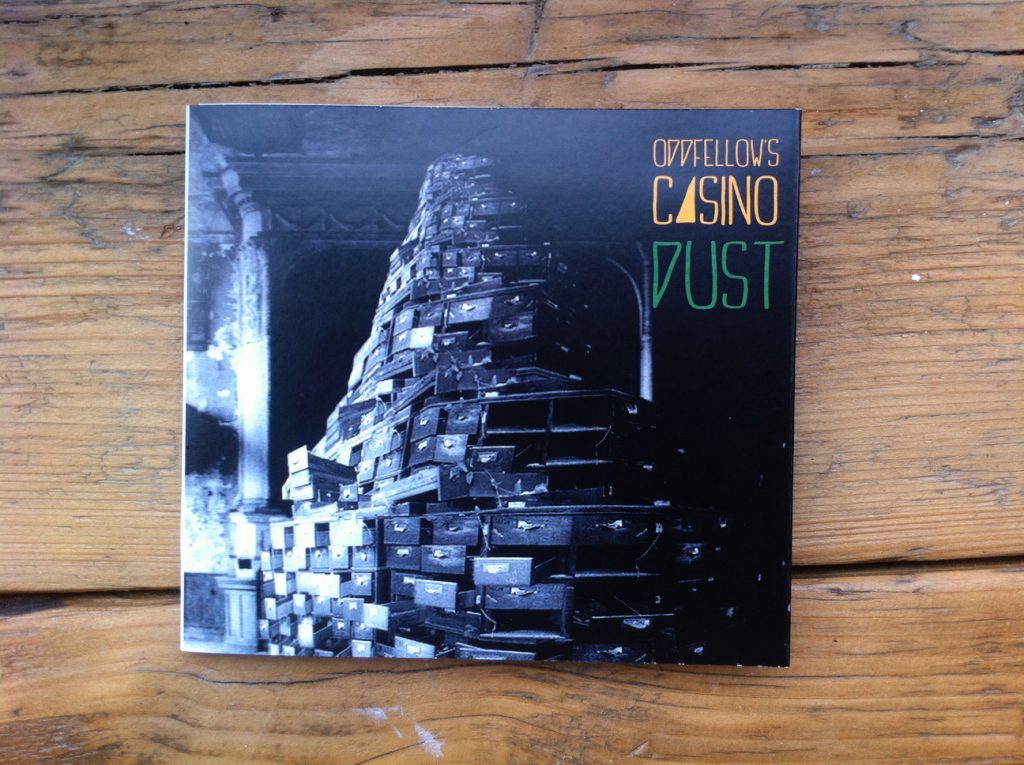
Dust is a collection of odd cards and chips from the casino’s darker chambers, including unreleased songs, covers and alternative mixes. If it is the tail feathers of this rare English bird then it flies just as easily as the main frame. Take Me Out to Sea is a beautiful call for the reverse of rescue on piano and fluted phrase and casts the soul adrift, guided by the continued angelicism of Bramwell’s voice. The Bend at Coneyhurst Gil must be the most Old English sounding title I can think of since Penda’s Fen (celebrated on Oh, Sealand) and has some gorgeous weaving of picking, piano pounding and hum. Three covers follow of songs by Jason Pegg, Laurence Collyer and Stephen Merrit, but Bramwell’s own work surpasses these easily with its particularity, beauty and ease.
The Oddfellow gambles on the intelligence and sensitivity of his prospective listeners but it is they who will lose out if they do not choose to pay attention to him. As David sings of ‘another world down in the water’ the surface is set for the continued shimmer of his songs. Embers and The Murder Bed are particular standouts. They cavort through these stories like the strangers on the shore or the ghosts of a long hidden gulf. The Lights on Ermine Street has a busy piano refrain that tells us Bramwell has much more to do. Like the waters and birds he celebrates his work is set to fill, influence and enhance the long neglected harbours of our own imaginations…
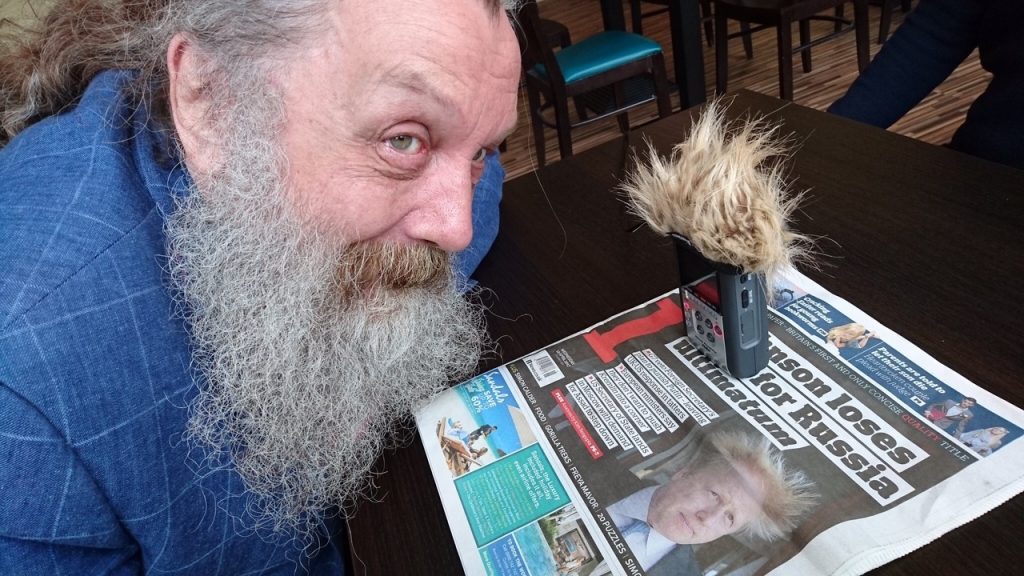
These harbours and ports of travel connect strongly to the explorations Bramwell has undertaken in other aspects of his work. Through tracing the history, effect and influence of the River Don in his radio documentary DANU – Dead flows the Don, in which Alan Moore accompanies him in his exploration of the poetry and place and Goddess worship, onto paying praise to seminal harmonium charged challenger to the norm, Ivor Cutler in a programme that would have marked Cutler’s 90th birthday (which he narrowly missed and you shouldn’t, both available on the BBC iPlayer), Bramwell’s sojourn in the Swiss Alps in 2006, following an emotional break up brought him into contact with the esteemed Damanhur cult, whose Temple of the Human Kind, is located deep within the region; a secret paradise underneath the rock, as large as St. Paul’s Cathedral. Ignited by revolutionary guru, Hawk Dandelion, in 1978, a community of like minded seekers of the source have created a truly independent alternative culture and answer to the current problems of society. These children of the light and earth have literally created the eighth and ninth wonders of the world, from a mixture of Egyptology, new age style mysticism, naïf art and husbandry in all of its varied forms, inadvertently creating a functional time machine. Apparently 2180 is the day the world ends and these Campbellian seekers (through I reference Joseph and Kenneth) have been set the task of travelling back in time to resource the Atlantean energy necessary to adjust the tectonic axis of our fates. Initial opposition to their buying of the land and building without planning commission, in order to achieve these sainted aims, led to immediate conversion to their cause, from the highest reaches of the Italian government and Bramwell charts the whole saga in his second enlightening tome The No. 9 Bus to Utopia.
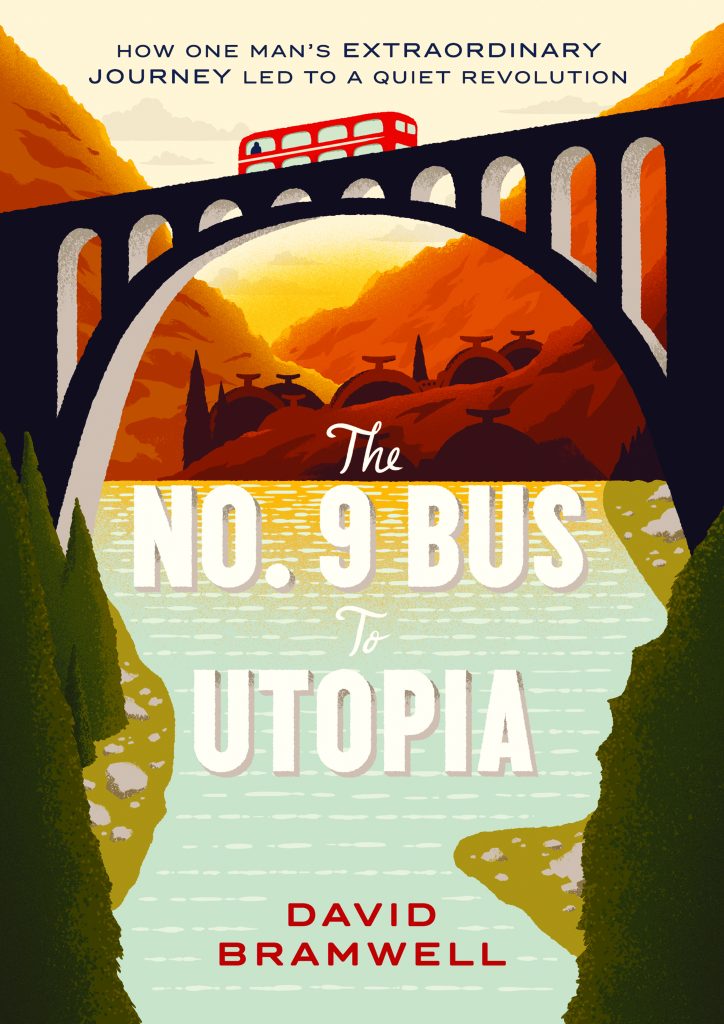
The fact that he not only heard about this community in the Brighton underground and then sought it out and actually visited, ascending to the heights of the Alps before descending again to their innermost reaches, not only enhances Bramwell’s contribution as chronicler of all that is worthy but makes him as interesting, crucial and revelatory as Ken Campbell was in his prime. Campbell’s prime lasted from birth to death of course and the boyish Bramwell has a long way to go, but this former music teacher turned cultural adventuralist has through the sheer range of his preoccupations become a kind of Dalai Lama of Art. I owe that phrase to the wonderful Paul Putner, star of stage and screen and together we witnessed David’s talk on this trip as part of the Fortean Society’s regular series of events at the Conway Hall. John Higgs is next up and he too, should never be missed.
What then, to make of all this endeavour? I think that the point of creativity especially in this marginalised and maniac threatened age is to find those individuals and bodies of work ripe for celebration. I have spent thirty years looking for an artistic community I can respect and learn from and I hope that the world and work David Bramwell represents is one I can be part of in some small way. He and the work he details and produces is what’s needed at a time when few know what they want and look and his work is all to do with return and the advances we can strategise once we fully understand where we came from. He examines and expands the atmosphere like all great artists do and must, from Ken Campbell to Andy Goldsworthy, from Sebastian Salgado to Alan Moore, Werner Herzog and Heathcote Williams. He is the Eno who’s on, and the Perec we all should be part of, keen to chart every shadow and reframe or repoint each sharp line. Beyond fame, he is found and beyond taste he is favour and his is the story that you should all want to adopt.
He is a poet of place, a singer of sky and poetry’s fresh piano.
As you listen to his words and music, each page is a cloud passing by.
If those clouds are adrift and on their own terms seen as angels than the gamble on entry is one that only chance can provide.
The deal has been set. The collection continues.
An old world has been fashioned.
The Oddfellows Casino is open.
Let everyone now come inside.
David Erdos 5/9/17
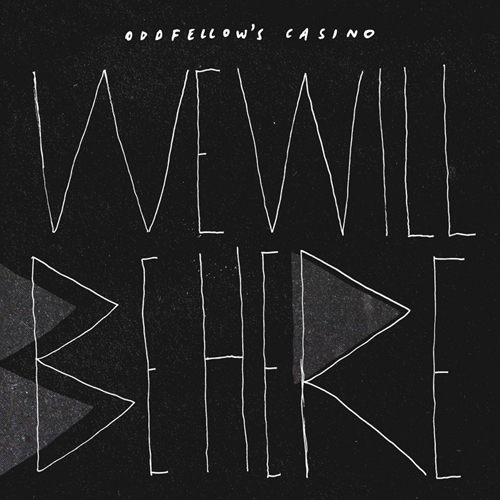
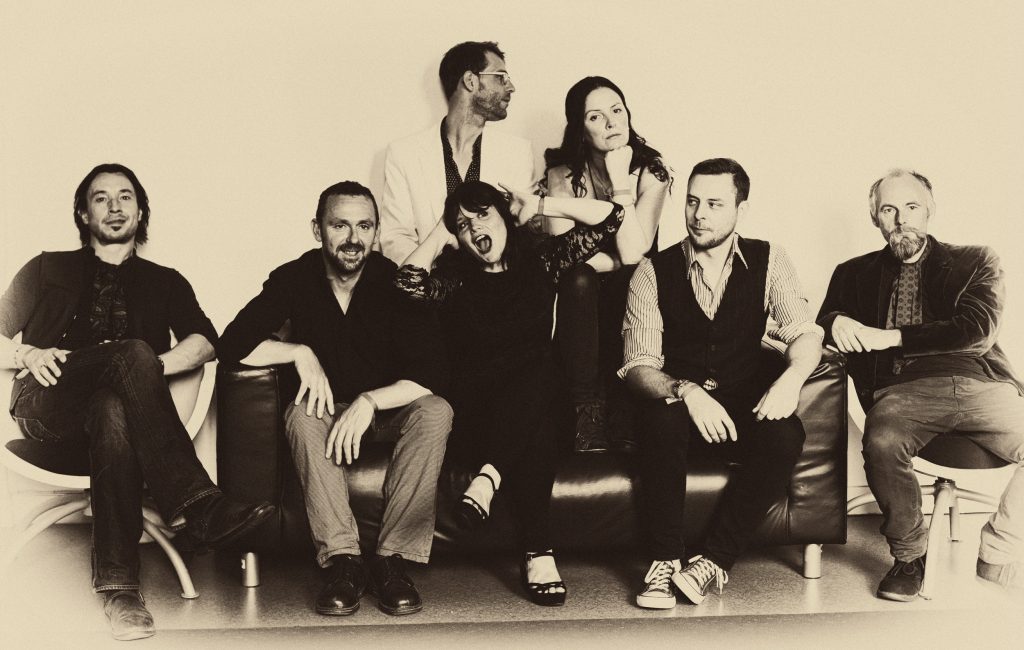

– David Erdos brings us reports from the underground,
Comment by Cy Lester on 22 September, 2017 at 11:46 am– in the spirit of Heathcote Williams.
– I would not know what was happening, otherwise,
– while living in the Ark Frestonia.
Thank you Cy. I’m more than touched. We all miss him so
Comment by David Erdos on 22 September, 2017 at 12:19 pm